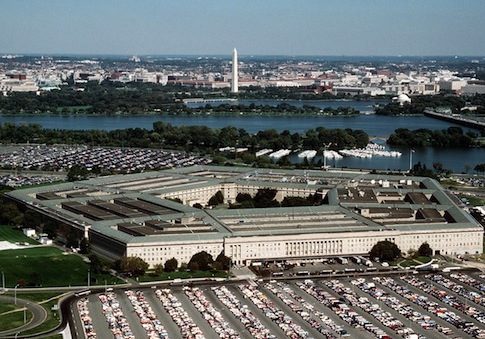The Pentagon under the administration of Donald Trump will face challenges in cyber security, acquisitions management, and numerous other areas that demand continued oversight.
The Pentagon's inspector general this week published its fiscal year 2017 oversight plan, identifying the key challenges facing the Defense Department as the president-elect prepares to take office.
Among 10 "critical" management and performance challenges facing the Pentagon is boosting the military's cybersecurity and cyber capabilities at a time when hackers from Russia and China are increasingly targeting U.S. systems—including those used by government personnel--with cyber attacks.
The issue of cybersecurity has invited heightened attention after the U.S. intelligence community accused the Russian government of directing cyber attacks on systems used by U.S. political organizations in order to influence the presidential election. Russian hackers also breached the unclassified email system used by the Joint Chiefs of Staff last August, compromising the information of hundreds of military personnel.
"The DoD has become increasingly reliant on cyberspace to enable its military, intelligence, and business operations to perform the full spectrum of military operations without disruption, and cyber threats and exploitable vulnerabilities have grown substantially," the inspector general report states.
"DoD continues to face significant challenges in protecting and securing its networks, systems, and infrastructure from cyber threats and in increasing its overall cyber capabilities. Cyberspace threats to the DoD continue to increase at an alarming rate."
The Pentagon inspector general has previously spotlighted the significant cyber-related hurdles facing the department, writing in an annual report issued last week that a "wide range of cyber security weaknesses" had been identified in the Pentagon's systems and networks over the last year.
Cybersecurity will be one of several areas of focus of the watchdog in 2017, as Trump takes office and retired Marine Gen. James Mattis, the president-elect's choice for defense secretary, begins his confirmation process to assume the leading role at the Pentagon.
Other serious challenges cited by the inspector general include countering the terrorism threat, protecting key defense infrastructure, developing full spectrum total force capabilities, building and keeping readiness of the U.S. armed forces, and countering the main global strategic challenges posed by Russia, China, Iran, North Korea, and terror groups.
The Defense Department also needs to focus on ensuring ethical conduct, improving financial management, and enabling effective acquisition and contract management, according to the watchdog.
Trump has already put heat on expensive Pentagon acquisitions programs, most notably by slamming the "out of control" costs associated with the F-35 Joint Strike Fighter program. Scheduling delays and associated cost overruns have plagued Lockheed Martin's development of the fifth-general stealth fighter jets and the program's budget has ballooned to $400 billion—nearly double its initial estimate—over 15 years, making it the Pentagon's most expensive acquisition program.
Trump, who met with the CEOs of major defense contractors Lockheed Martin and Boeing on Wednesday, wrote on Twitter late Thursday that he had asked Boeing to "price-out a comparable F-18 Super Hornet," an older aircraft, because of the high costs of the F-35 development.
"Acquisition and contract management have been high-risk areas for the DoD for many years," the inspector general's strategy document states. "Although Congress and the DoD have long sought to improve the acquisition of major weapon systems, many DoD programs are still falling short of cost, schedule, and performance expectations. This can result in unanticipated cost overruns, program development spanning decades, and, in some cases, a reduction in the capability ultimately delivered to the warfighter."
The Pentagon has 1,375 defense acquisitions programs, which it needs $183.9 billion in 2017 to fund.
For its own part, the inspector general intends to audit several acquisition programs in 2017, including the Navy Expeditionary Fast Transport, the Marine Corps Amphibious Assault Vehicle, Navy Mine Countermeasures Mission Package, and the Army and Marine Corps Joint Light Tactical Vehicle, in addition to several audits of military contracts.
The transition process at the Pentagon has already begun, with Trump's team setting up shop at the department to receive briefings. The inspector general also highlighted the management of the transition process as a key challenge for the Pentagon, given the rotation of personnel and possible national security implications of a bungled transition.
"While managing presidential transitions is a challenging issue for all federal departments and agencies, it is especially true for the DoD because of the national security implications," the inspector general wrote. "Gaps in leadership, delays in approving key decisions, and uncertainty about policy objectives can have significant effects on national security. For that reason, it is critical that the transition to new leadership be smooth, effective, timely, and seamless."
Mattis will face confirmation hearings before the Senate Armed Services Committee next year to become defense secretary, but first Congress must pass a waiver allowing him to serve in the top defense post despite not being out of the service for seven years. Trump will be inaugurated on Jan. 20.
